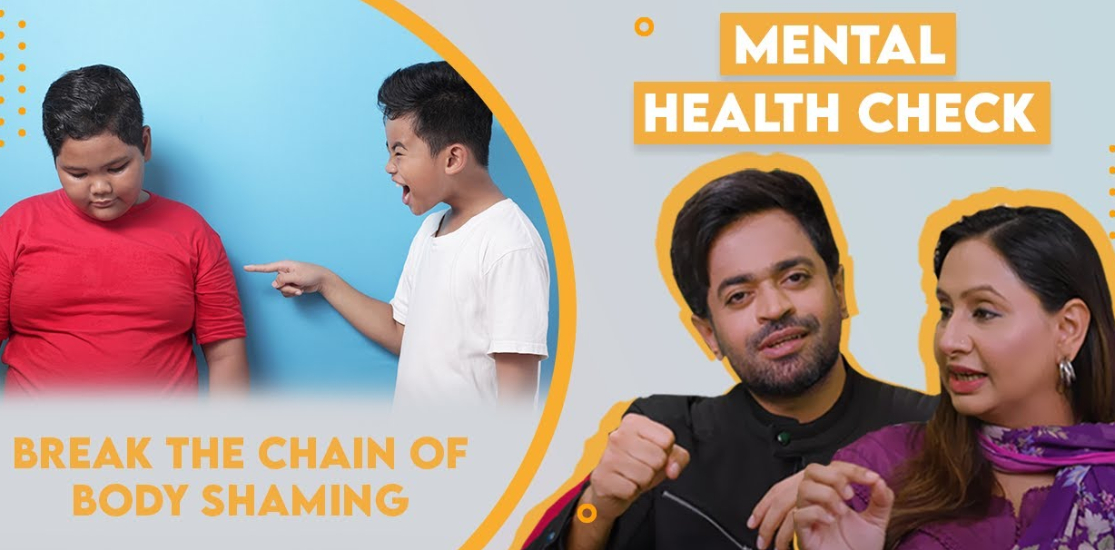- Pakistani actor Naveed Raza discussed the issue of body shaming on the talk show “Mental Health Check.”
- Raza highlighted how body shaming often begins at home and continues in educational institutions, affecting both children and adults.
- The detrimental impact of body shaming includes emotional distress, low self-esteem, and a perpetuating cycle of negativity, emphasizing the need to address this issue within families and schools.
In a thought-provoking discussion on the talk-show, ‘Mental Health Check’, Pakistani actor Naveed Raza delves into the deep-seated issue of body shaming in Pakistan.
Talking to a psychologist, the actor sheds light on the important issue that prevails in the Pakistani society. He spoke about body shaming and its foundation and the detrimental impact it has on everyone beginning with children. Raza asserts that the seeds are sown within the confines of our homes and continue to flourish in educational institutions, ultimately contributing to a toxic culture of body negativity.
In a viral clip from his popular talk show, Naveed Raza asks the two women joining him on how this issue develops. He further talks about why children and adults both call people by names given due to their body types or skin colour?
“Jo chashma pehnta hai woh chashmatu, jo kaala hota hai usko kaala bola jata hai. What is this problem? Is it a disorder?”
The psychologist on board Dr Kanwal pointed out how people and their personal complexes and insecurities are the main reasons behind their bullying.
“When a person is lacking a few attributes they feel they must take it out on someone before they become a target.”
Naveed Raza went on to talk about bullies at school and in families. He spoke about two kinds of bullies. Here’s what he had to say,
“There are two types of people who have been bullied. One is the type of people who believe they were bullied so they must bully others in return to project the pain onto them while the second type of people believe in letting things go.”
The Effects of Negative Energies in the Society
The negative space and energy that hateful words create are indeed profound as explained by Raza. Body shaming perpetuates a cycle of emotional distress, leading to low self-esteem, anxiety, and depression among its victims. Moreover, individuals subjected to body shaming may eventually resort to the same harmful behavior, inadvertently continuing the vicious cycle for future generations to come.
Body Shaming and its Unseen Impacts
This issue affecting individuals worldwide, finds its roots in the very place where love and nurturing are expected – our homes. From an early age, children are exposed to the ideals of beauty and perfection perpetuated by family members, often unintentionally. These subtle messages, whether conveyed through casual comments or comparison to societal standards, lay the groundwork for a lifetime of body image struggles. People often end up having depression or eating disorders due to constant body shaming that begins from the home.
Breaking the Cycle of Body Shaming
It is imperative to acknowledge and address the issue at its roots – within our homes and schools. Parents must be mindful of the messages they convey to their children about body image, emphasizing self-acceptance and diversity. Schools can play an important role in creating a nurturing environment that promotes self-esteem and discourages body shaming.
Adults in the Pakistani society are often prone to body shame people based on their body types and skin colour. People should be mindful of passing remarks on other adults in-front of little children. It not only creates a negative impact but lets out negative energy too.
Follow WOW360 for more.
